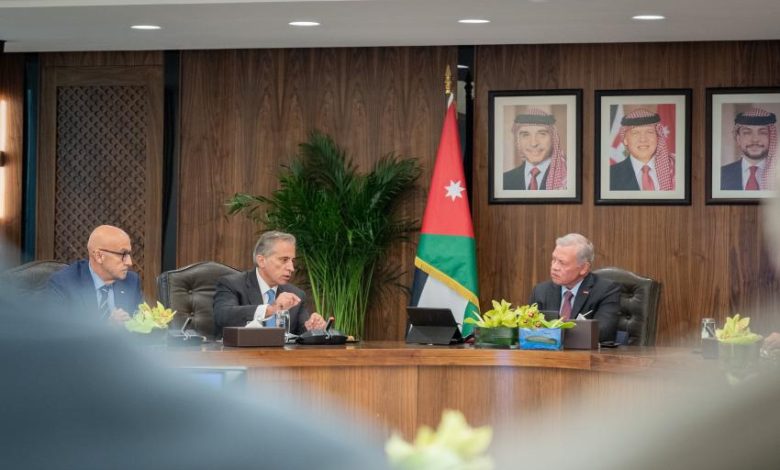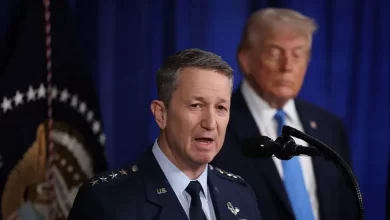
Jordan Daily – His Majesty King Abdullah II on Tuesday said every official must serve citizens, stressing the need to continue following up on their needs in the field, according to a royal court statement.
During a visit to the Prime Ministry and chairing part of a Cabinet meeting, His Majesty said the government’s executive programme must be clear and subject to continuous evaluation.
The King added that the next phase requires the government to step up its work and achievements, so that citizens can benefit from its efforts.
His Majesty said regional developments will not delay the implementation of political, economic and administrative modernisation programmes, noting that public administration development is the cornerstone of the modernisation process.
The King added that the Economic Modernisation Vision is a roadmap for growth and a better life for Jordanians, which requires focusing on investment opportunities and attracting investors to boost the economy and create job opportunities.
His Majesty urged the government to focus on the technology sector due to its role as a key economic driver and its contribution to improving the quality of services provided to citizens.
The King concluded by reaffirming that Jordan will remain an oasis of stability, relying on the strength and efficiency of its institutions.
For his part, Prime Minister Jafar Hassan reiterated the government’s commitment to implementing the Royal directives to enable citizens to participate in defining development priorities at the local level and aligning them with the Economic Modernisation Vision as stated in the Letter of Designation.
Prime Minister Hassan said the government’s approach extends over three levels: The strategic national level by moving forward with the implementation of the economic and administrative modernisation visions within clear timelines; and the local development level by interacting with citizens and finding quick solutions to some of the challenges they face, while also building a development vision for each governorate in partnership with elected councils and bodies.
The third level is related to political and local engagement through political modernisation and its upcoming steps, namely developing local administration legislation by launching a national dialogue in this regard to activate the role of municipalities and local councils in development.
The prime minister presented the government’s achievements during its first 100 days in office in the fields of investment and anchor projects, for which agreements worth more than $1.1 billion have been signed, namely the gas port, the container port, and the potash bromine plant projects.
Prime Minister Hassan noted that the government is focusing this year on the implementation of strategic projects such as the National Water Conveyance Project, as well as the railway project connecting the port of Aqaba to the mining areas of Shidiyeh and Ghor Al Safi, and working on linking this project with the land port in Maan.
He highlighted the structural reform decisions that have been taken, such as customs and tax settlements for issues that had been pending for years and a radical restructuring of the vehicular sector, including unlicensed vehicles.
Turning to public sector modernisation, the prime minister pointed to the public sector human resources by-law, which entails enhancing employees’ performance and building their capacities, in addition to the establishment and expansion of comprehensive government service centres, noting that 80 per cent of government services will be automated this year.
Royal Hashemite Court Chief Yousef Issawi and Director of the Office of His Majesty Alaa Batayneh accompanied His Majesty on the visit.

